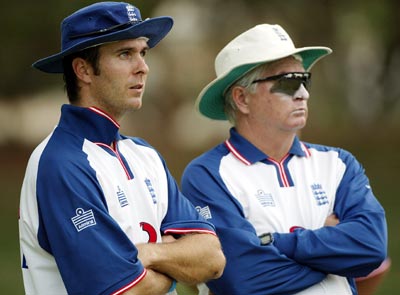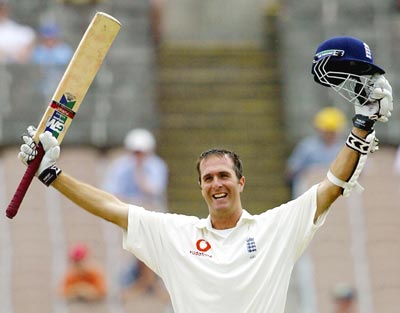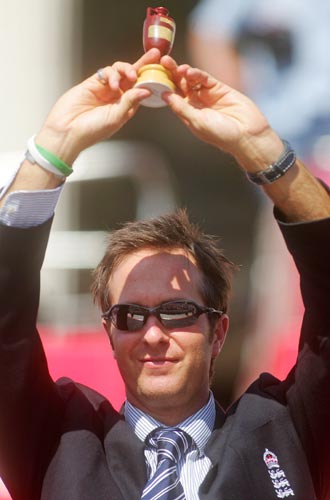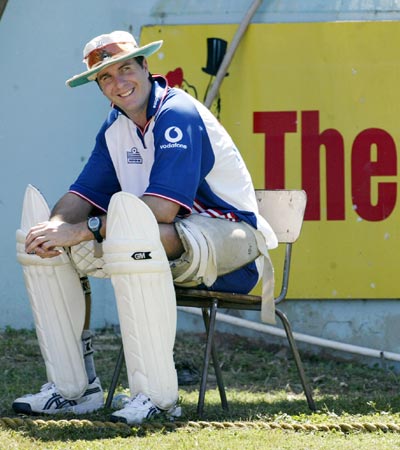
Michael Vaughan touched greatness as an opening batsman then scaled the heights as England captain before a chronic knee injury hastened his premature retirement.
Vaughan, 34, announced he had retired from all cricket on Tuesday after failing to win back his place in the national side and fulfil his dream of playing once more in an Ashes-winning side.
"It has been a hard decision," Vaughan told a news conference at Edgbaston.
"I wanted to give myself one last chance of playing against Australia but I haven't been playing well enough and my body is not reacting how I would like it to be."

Speculation that Vaughan might be recalled for one last tilt at Australia, after leading England to their memorable home victory in 2005, always seemed fanciful.
He has not played for England since resigning as captain last year and passed 50 only three times in 22 innings for Yorkshire.
He was also forced to leave the field frequently to rest his troubled knee which raised fresh doubts about his ability to get through a five-day Test.
Vaughan's elegance and class were apparent from the start of his career, although he was never a heavy scorer in county cricket and did not force his way into the England side through sheer weight of runs.

With Michael Vaughan, I liked what I saw from the start," former England coach Duncan Fletcher wrote in his Guardian column on Monday.
"He was out twice for one in a game at Headingley between Yorkshire and Glamorgan in 1999, but I'd watched him in the nets and I made damn sure I got him on to the tour to South Africa that winter -- my first as England coach. It was the start of one of my most satisfying relationships."
Vaughan made an immediate impression in South Africa, with England four wickets down for two runs on a lively, unpredictable pitch in the first Test.
He scored only 33 and 38 but his calm authority and classical technique were immediately apparent.

He blossomed into a batsman of the highest class in the English summer of 2002.
Vaughan's cover and off-driving was the equivalent to any of the great stylists of the past and his audacious pull shot, when he whipped the ball through mid-wicket from just short of a length, took the breath away.
In the 2002-3 tour to Australia tour Vaughan scored 633 runs with three centuries, attacking the bowling from the outset and reducing even the great Glenn McGrath to frustrated impotence.
He took over the England one-day side followed by the Test team after Nasser Hussain retired following a century in the 2004 Lord's Test against New Zealand.

The summer of 2004 was a golden period for Vaughan and England, who were maturing into a confident and successful team with Andrew Flintoff and Steve Harmison at the core.
They were at the heart of the team who supplied Vaughan with his finest hour in 2005 when England regained the Ashes at the Oval.
"Vaughan radiated calm, it was one of his greatest strengths," added Fletcher.
"But beneath that veneer -- one I believe is crucial for any international captain -- was a toughness few of his team mates could match."

Vaughan is statistically England's most successful captain with 26 victories from his 51 Tests in charge, although most of those wins came against the modest opposition of West Indies, New Zealand and Bangladesh.
His Test average of 41.44 is good but not outstanding.
Figures, though, tell nothing of the exhilaration of watching Vaughan bat in his prime or show his poise and tactical acumen in 2005 when he was a crucial figure in a series acclaimed by the Wisden almanac as the best ever staged.